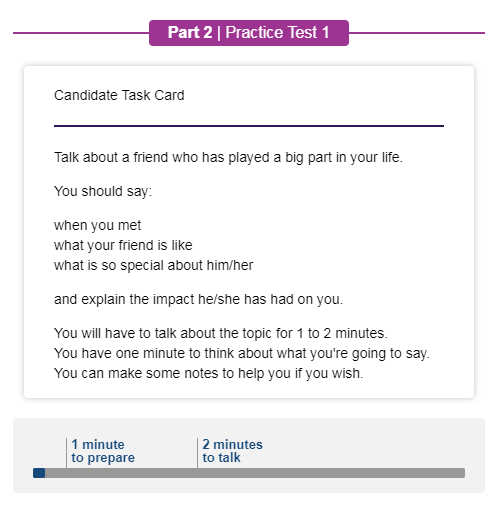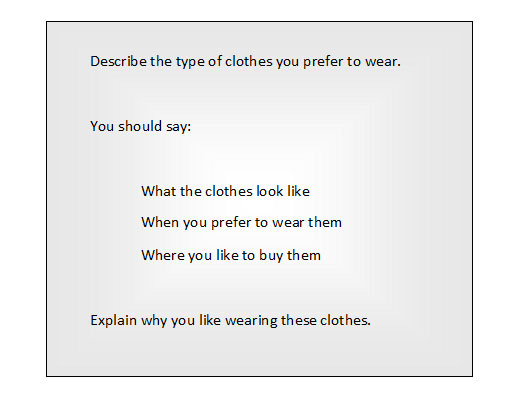IELTS Speaking Practice: Tips and Strategies for Success
Introduction: Mastering the IELTS Speaking Test
The IELTS Speaking Test can be a challenging component for many candidates. However, with the right preparation and practice, you can significantly improve your speaking skills and boost your confidence. This section of the IELTS exam is designed to assess your ability to communicate effectively in English, and it includes three parts.
In this article, we’ll guide you through the essential IELTS Speaking practice strategies, tips, and resources to help you succeed. Whether you’re aiming for a Band 7 or higher, we have the tools and advice you need.

1. Understand the Structure of the IELTS Speaking Test
1.1 The Three Parts of the IELTS Speaking Test
The IELTS Speaking test consists of three parts, each designed to evaluate different aspects of your spoken English skills.
-
Part 1: The Introduction and Interview (4-5 minutes)
-
In this section, the examiner will ask you basic questions about yourself, such as your hobbies, home, or studies.
-
This is a great opportunity to warm up and showcase your fluency.
-
-
Part 2: The Long Turn (3-4 minutes)
-
You will be given a topic card with a prompt. You’ll have 1 minute to prepare and then speak for 1-2 minutes on the topic.
-
Focus on speaking continuously and coherently.
-
-
Part 3: The Discussion (4-5 minutes)
-
In this part, the examiner will ask questions related to the topic you spoke about in Part 2. It’s a deeper conversation that tests your ability to discuss complex ideas and provide opinions.
-
Understanding the structure of the test will help you to approach each part with the appropriate strategy.
1.2 Practice Speaking in Real-Life Situations
To excel in the IELTS Speaking test, it’s crucial to practice speaking English regularly. Engage in conversations with friends, tutors, or even language exchange partners. The more you practice, the more comfortable you will become with speaking English in various situations.
-
Join Conversation Groups: Many cities offer language exchange programs or conversation groups that allow you to practice speaking with others.
-
Online Platforms: Websites and apps like italki and Tandem provide opportunities for speaking practice with native speakers.
2. Part 1: How to Ace the Introduction and Interview
2.1 Be Prepared to Talk About Yourself
In Part 1 of the IELTS Speaking test, the examiner will ask you about familiar topics such as your hometown, family, hobbies, and interests. To answer confidently:
-
Practice Common Questions: Write down common questions that might be asked in this section and practice your responses.
-
Be Natural: Try to speak naturally, as if you’re having a casual conversation. Avoid memorized answers.
2.2 Use Extended Answers
Simply saying “yes” or “no” won’t help you score well. Instead, aim to give extended answers that provide more details and demonstrate your ability to communicate in English.
For example:
-
Question: “Do you like sports?”
-
Answer: “Yes, I really enjoy playing football. It’s a great way to stay fit and have fun with my friends on the weekend.”
3. Part 2: How to Tackle the Long Turn
3.1 Use the One-Minute Preparation Time Wisely
In Part 2, you’ll have one minute to prepare before you speak. Use this time to organize your thoughts and make a brief outline of your answer. This is the perfect time to jot down key points that will guide your response.
-
Think of Examples: When preparing, think of personal experiences or examples that can make your answer more engaging and relevant.
-
Stay on Topic: Ensure you cover all points mentioned in the prompt card during your speaking time.
3.2 Speak Clearly and Organize Your Ideas
During your speech, aim to speak clearly and logically. A good strategy is to divide your answer into sections, such as:
-
Introduction (Introduce the topic briefly)
-
Main Body (Provide details and examples)
-
Conclusion (Summarize or reflect on the topic)
This structure will help you to stay organized and avoid rambling.

4. Part 3: How to Handle the Discussion
4.1 Be Ready for Complex Questions
In Part 3, the questions become more abstract and complex, requiring you to express opinions, analyze situations, and make comparisons. It’s important to:
-
Provide Detailed Answers: Go beyond simple opinions and explain why you feel the way you do. Support your answers with examples or reasons.
-
Be Open-Minded: The examiner may ask you to discuss different viewpoints, so be open to considering alternative perspectives.
4.2 Focus on Fluency, Not Perfection
In this section, fluency is more important than accuracy. While it’s essential to use correct grammar and vocabulary, don’t worry about making small mistakes. Focus on speaking clearly and communicating your ideas effectively.
5. Tips for Improving Your IELTS Speaking
5.1 Practice with Mock Tests
Taking IELTS Speaking mock tests is one of the best ways to prepare. These tests will help you become familiar with the test format and give you the chance to practice answering questions under timed conditions.
-
Simulate Real Conditions: Practice speaking in a quiet environment and time yourself to replicate the actual exam experience.
-
Review Your Performance: After taking a mock test, review your answers and note any areas for improvement.
5.2 Record Yourself Speaking
Recording yourself while practicing can help you identify areas where you need improvement. Listen to your recordings and pay attention to:
-
Pronunciation
-
Fluency
-
Coherence of ideas
By listening to yourself, you can make adjustments to improve your performance.

6. Key Vocabulary for IELTS Speaking
6.1 Use a Wide Range of Vocabulary
To score well on the IELTS Speaking test, it’s important to use a wide range of vocabulary. This demonstrates your command of the language and helps you convey ideas more effectively.
-
Avoid Repetition: Instead of using the same words, try to incorporate synonyms. For example, instead of saying “good,” use “excellent,” “impressive,” or “outstanding.”
-
Use Idiomatic Expressions: If used appropriately, idiomatic expressions can enhance your answer and make it sound more natural.
6.2 Use Connectors and Discourse Markers
Use connectors and discourse markers to help organize your speech and link ideas together. Some useful ones include:
-
Firstly, Secondly for listing points.
-
In contrast, On the other hand for comparisons.
-
For example, In other words for clarifications.
7. Frequently Asked Questions About IELTS Speaking Practice
Q1: How can I improve my fluency for IELTS Speaking?
A1: The key to improving fluency is consistent practice. Engage in conversations, take mock tests, and record yourself speaking to identify areas for improvement. Also, focus on speaking continuously, even if you make minor mistakes.
Q2: How long should my answers be for Part 2 of the IELTS Speaking test?
A2: Aim to speak for at least 1-2 minutes. You’ll be given a topic and a prompt card with several points. Be sure to cover all the points while speaking naturally and without rushing.
Q3: Is it important to use complex vocabulary in IELTS Speaking?
A3: While it’s important to use a wide range of vocabulary, don’t focus solely on using complex words. It’s more important to speak clearly and logically, using words you are comfortable with.
Q4: Can I use notes during Part 2 of the IELTS Speaking test?
A4: Yes, you will have one minute to prepare your notes before speaking in Part 2. Use this time to jot down key points, but don’t rely too much on your notes during your speech.
Conclusion: Boosting Your IELTS Speaking Performance
Preparing for the IELTS Speaking test requires dedication and practice. By understanding the test structure, practicing with mock tests, and incorporating these strategies, you’ll be well on your way to achieving a high band score. Remember to focus on fluency, coherence, and vocabulary to impress the examiner.
Start practicing today and take the first step towards achieving your desired IELTS Speaking score.








